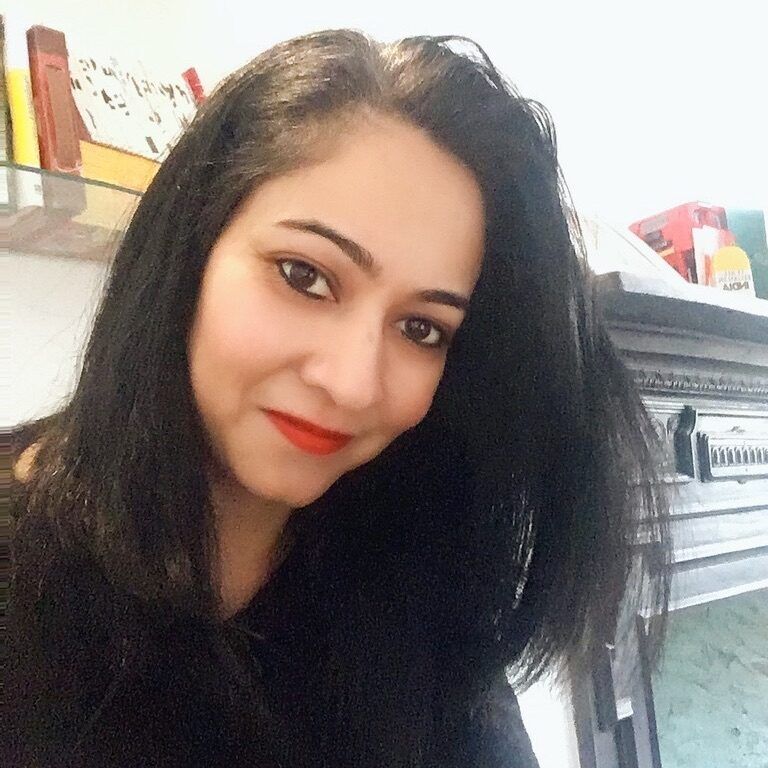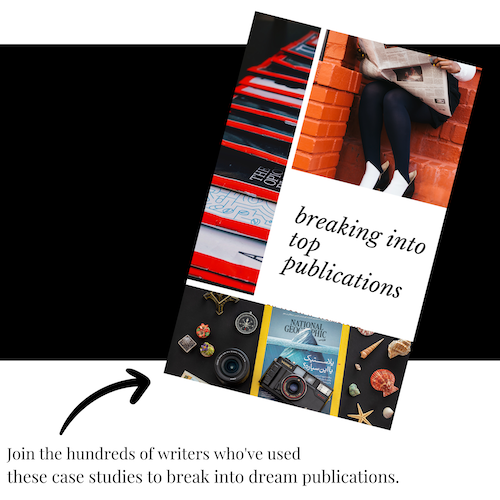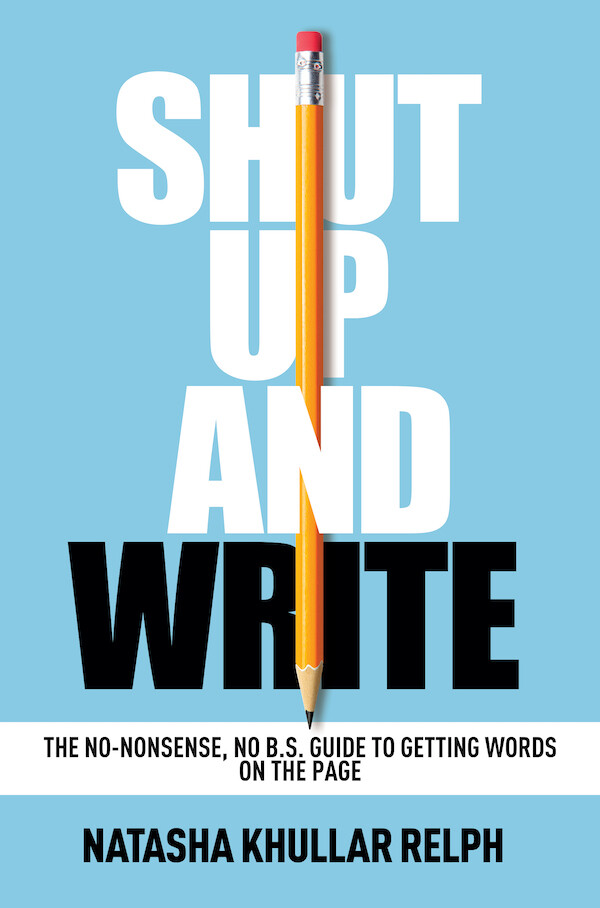
FROM THE EDITOR’S DESK
Hiya writer friends,
Why do publishers keep buying the same thing over and over?
For years, I was stuck on this question. And it was only when I spoke to a creative director at a TV studio that it finally started to make sense.
The gatekeepers aren’t buying the same books (or movies) because they have no taste, it’s likely because it will take a lot of courage. See, the role of a book editor isn’t to support your career or fund your art or whatever it is that writers like to believe. It’s to keep their jobs.
Their job is profitability. And while they may see profitability in something new and untested, they have to stick their neck out for it. They have to back it. And if they do and they’re wrong? It’s their job on the line. Authors get blamed publicly, but internally, if an editor is acquiring too many books that are failing to connect with readers or aren’t selling, it’s their responsibility.
So, if you’re an underpaid, overworked, burned out editor, what do you do? You go with the easy wins. The predictable wins. The authors who’ve already proven themselves. Authors with a platform. Authors who know how to sell. Authors that write in a genre with a high readership. Every now and again, they will fall in love with something and take it on, of course, but that’s not the model. That’s not how anyone makes the entirety of their living.
When I was trying to sell my novels, I wanted them to take a chance on me because I knew I had a lot to offer. I knew my novels would resonate with my audience because I know my audience. I knew I could market well. They saw an unproven Indian author with a novel that doesn’t fit neatly into one genre and challenges conventions, especially of the white reading public. They saw a risk.
I took it personally. Of course I did. It made no sense to me that the same editor who called me “the voice of a generation” also said they couldn’t publish my book. I was told repeatedly how good my writing is and why my stories are incredibly important and need to be told. I wondered, for a long time, if these people who on the surface seemed so nice and genuine, were all just a bunch of bullshitters.
But then I learned how movies are made, and how new models like Netflix have completely rewritten those rules, and it made me feel better. It brought me to a new level of understanding.
I began to see that what they were saying was—you are an excellent writer and your stories deserve to be told. But your book with your sari-wearing, weed-smoking, suicidal protagonist is a risk, and I’m not willing to bet my career and my livelihood on it.
So now, as a writer I have two options:
1. Write what they want. Study other Asian and African writers, and find models and stories that editors feel are easier to bet on because they have clear points of comparison. Tell better stories. Tell more accessible stories. Give them something they absolutely can’t turn down. Find a way to make my work fit into the existing market.
2. Back myself. Bet my own career and livelihood on my books by going indie.
I think both options are valid and I’ll probably end up doing both. My publishing goal, which I’m beginning to get serious about, is to write and publish 100 books. Each of these books will have its own individual journey, its own way of coming to market. Some will fit into existing structures, and others will need to be indie published because nobody other than me wants to risk their careers on them.
For a long time, I couldn’t understand why my amazing New York agent kept saying she believed I would make millions from my novels, and I couldn’t even make a dime. She paid over $12,000 out of her own pocket for me to work with a top editor for my second novel because this was a story about my life and I needed help getting out of my own way. “I’ll make back far more than that on the sale of this book, trust me,” she said to me at the time. I believed her. I still do.
But the novels didn’t sell. The rejections felt like literary gaslighting. I couldn’t understand why the same editors who were telling me that my work was excellent were also, in the same breath, apologizing for not being able to buy the book. Why they constantly, constantly, constantly needed to point out that I’m Indian. (I know, I wanted to say. You’re just finding this out now, but I’ve known for my WHOLE LIFE.)
I didn’t understand it then. Now I’m beginning to.
I made it personal. For them, it was just business.
Because the people who would buy my novels would need to take a gamble on them. And, at least for now, no one’s willing to make that bet.
Except for me.
Enjoy the issue!
Natasha Khullar Relph
Editor, The Wordling
THE WORDLING RESOURCE

Break into Top Publications: 5 Case Studies
How one writer broke into The New York Times and TIME, became a contributing editor at ELLE, and made more than $10,000 from a single story.
NEW ON THE WORDLING
I’ve Self-Published 9 Books. Here’s What I’ll Do Differently Next Time
Because hitting publish is just the first step.
What I Learned From Writing 10K Words in a Single Day
It’s not worth doing if it’s not replicable
NEWS & VIEWS:
AI at the book fair

One of the biggest publishing events of the year, the London Book Fair, got underway this week. Here are some highlights.
The hangover after the pandemic party
HarperCollins CEO Brian Murray told the audience at the LBF that after two years of unprecedented growth during the pandemic, the book business is coming back to earth. “I often refer to it as if we had a pandemic party in the industry and at the end of 2022 was the hangover,” he said. “And we’re just getting through the hangover now.”
He’s referring to falling book sales as well as “unprecedented generational inflation rates.” Of course, the fact that 250 of his unionized workers went on strike for three months couldn’t have helped with the headache, though Murray was less forthcoming about what he may have learned from that (pay your people better?) other than that communication is important.
AI is the hot topic of conversation
Unsurprisingly, ChatGPT and AI are, perhaps, the hottest topic of this year’s fair, particularly after news broke that Amazon had launched its own AI platform as part of Amazon Web Services.
According to Publishers Weekly, Nigel Newton, president of the UK Publishers Association and head of Bloomsbury said during a panel discussion: “AI might kill us all, but if it doesn’t, it could be a useful tool for writers and publishers. It is going to give a great edge to those publishers who get it right and could have a significant impact on marketing, peer review, academic research and supply chain.”
Christy Fletcher, co-head of the book division at United Talent Agency, noted that AI could have a significant impact on rights sales and the translation market. “Chat GPT4 is doing a very good job of translating text and it can be difficult or even impossible to know if any or all of the text was initially generated by AI, and clearly some translators are using it as a starting point for their work.”
Video in publishing
This year, there were over a hundred countries represented at the London Book Fair. China has had a difficult couple of years, with an 11.8% year-on-year drop in 2022. “The changes in the book industry have been dramatic,” writes Alicia Liu for PW. “Online sales now account for 84% of all book sales and social media bookselling in the form of short videos has revolutionized publishing in China, up 42.86% year-on-year in 2022. Chinese publishers have embraced this change by building direct-to-consumer channels via social commerce platforms.”
THE WORDLING BOOKS

Shut Up and Write: The No-Nonsense, No B.S Guide to Getting Words on the Page doesn’t deal with writer’s block. It addresses the thousand things going on in your head that prevent you from Actually. Being. Productive.
With her characteristic humor, practicality, and hard-earned wisdom, Natasha Khullar Relph demonstrates an understanding of the creative mind. She shows you how to write anything—and finish it.
GLOBAL REPORT
IRAN: “Iran’s censorship laws severely limit on-the-ground reporting in the country, and have led to the expulsion of most foreign correspondents after the political upheavals of 2009. The few local correspondents remaining must tread lightly due to security reasons and the Western outlets who do get access to Iran are restricted in their activities or pre-vetted.”
TURKEY: “A combination of geographical proximity, logistical convenience, access to journalistic resources and a relatively freer media environment has turned Turkey into an oasis for anti-war and dissident Russians over the last year. While in Turkey, they can delay mandatory military conscription back home, while continuing to cover local and national Russian news without fearing direct interference from the Kremlin.”
NIGERIA: “Although distrust in official election results isn’t a new trend in Nigerian politics, many like Adekola believe that the most recent elections lacked credibility. These beliefs have been fueled both by credible reports about election irregularities during the voting process, and disinformation that spread during the election.”
QUOTE OF THE WEEK
“No passion in the world is equal to the passion to alter someone else’s draft.”
– H.G. Wells
SHARE THE WORDLING
If you’re enjoying The Wordling, would you consider sharing it with a writer friend?

